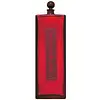What's inside
What's inside
 Key Ingredients
Key Ingredients

No key ingredients
 Benefits
Benefits

 Concerns
Concerns

 Ingredients Side-by-side
Ingredients Side-by-side

Opuntia Ficus-Indica Stem Extract
Skin ConditioningPropanediol
SolventDipropylene Glycol
Humectant1,2-Hexanediol
Skin ConditioningOpuntia Ficus-Indica Seed Oil
EmollientLagerstroemia Indica Flower Extract
Skin ConditioningRosa Centifolia Flower Extract
AstringentPEG-60 Hydrogenated Castor Oil
EmulsifyingXanthan Gum
EmulsifyingButylene Glycol
HumectantEthylhexylglycerin
Skin ConditioningWater
Skin ConditioningDisodium EDTA
Phenoxyethanol
PreservativeParfum
MaskingOpuntia Ficus-Indica Stem Extract, Propanediol, Dipropylene Glycol, 1,2-Hexanediol, Opuntia Ficus-Indica Seed Oil, Lagerstroemia Indica Flower Extract, Rosa Centifolia Flower Extract, PEG-60 Hydrogenated Castor Oil, Xanthan Gum, Butylene Glycol, Ethylhexylglycerin, Water, Disodium EDTA, Phenoxyethanol, Parfum
Water
Skin ConditioningButylene Glycol
HumectantAlcohol Denat.
AntimicrobialGlycerin
HumectantMethyl Gluceth-10
EmulsifyingDipropylene Glycol
HumectantBetaine
HumectantMethylparaben
PreservativeCyclodextrin
AbsorbentPhenoxyethanol
PreservativeSodium Metaphosphate
BufferingSodium Hyaluronate
HumectantCarbomer
Emulsion StabilisingParfum
MaskingPEG-60 Hydrogenated Castor Oil
EmulsifyingXanthan Gum
EmulsifyingPotassium Hydroxide
BufferingAcrylates/C10-30 Alkyl Acrylate Crosspolymer
Emulsion StabilisingArginine Hcl
Skin ConditioningMagnesium Chloride
PCA
HumectantCalcium Chloride
AstringentWater, Butylene Glycol, Alcohol Denat., Glycerin, Methyl Gluceth-10, Dipropylene Glycol, Betaine, Methylparaben, Cyclodextrin, Phenoxyethanol, Sodium Metaphosphate, Sodium Hyaluronate, Carbomer, Parfum, PEG-60 Hydrogenated Castor Oil, Xanthan Gum, Potassium Hydroxide, Acrylates/C10-30 Alkyl Acrylate Crosspolymer, Arginine Hcl, Magnesium Chloride, PCA, Calcium Chloride
 Reviews
Reviews

Ingredients Explained
These ingredients are found in both products.
Ingredients higher up in an ingredient list are typically present in a larger amount.
Butylene Glycol (or BG) is used within cosmetic products for a few different reasons:
Overall, Butylene Glycol is a safe and well-rounded ingredient that works well with other ingredients.
Though this ingredient works well with most skin types, some people with sensitive skin may experience a reaction such as allergic rashes, closed comedones, or itchiness.
Learn more about Butylene GlycolDipropylene Glycol is a synthetically created humectant, stabilizer, and solvent.
This ingredient helps:
Dipropylene glycol is technically an alcohol, but it belongs to the glycol family (often considered part of the ‘good’ alcohols). This means it is hydrating and gentle on skin unlike drying solvent alcohols like denatured alcohol.
As a masking agent, Dipropylene Glycol can be used to cover the smell of other ingredients. However, it does not have a scent.
Studies show Dipropylene Glycol is considered safe to use in skincare.
Learn more about Dipropylene GlycolParfum is a catch-all term for an ingredient or more that is used to give a scent to products.
Also called "fragrance", this ingredient can be a blend of hundreds of chemicals or plant oils. This means every product with "fragrance" or "parfum" in the ingredients list is a different mixture.
For instance, Habanolide is a proprietary trade name for a specific aroma chemical. When used as a fragrance ingredient in cosmetics, most aroma chemicals fall under the broad labeling category of “FRAGRANCE” or “PARFUM” according to EU and US regulations.
The term 'parfum' or 'fragrance' is not regulated in many countries. In many cases, it is up to the brand to define this term.
For instance, many brands choose to label themselves as "fragrance-free" because they are not using synthetic fragrances. However, their products may still contain ingredients such as essential oils that are considered a fragrance by INCI standards.
One example is Calendula flower extract. Calendula is an essential oil that still imparts a scent or 'fragrance'.
Depending on the blend, the ingredients in the mixture can cause allergies and sensitivities on the skin. Some ingredients that are known EU allergens include linalool and citronellol.
Parfum can also be used to mask or cover an unpleasant scent.
The bottom line is: not all fragrances/parfum/ingredients are created equally. If you are worried about fragrances, we recommend taking a closer look at an ingredient. And of course, we always recommend speaking with a professional.
Learn more about ParfumPeg-60 Hydrogenated Castor Oil comes from hydrogenated castor oil. It is a solubilizer and emulsifier.
As a solubilizer, it helps dissolve ingredients into a water-based version. It is also an emulsifer. Emulsifier help prevent oils and water from separating. Both these properties help create evenly-spread and uniform products.
Basically, Peg-60 Hydrogenated Castor Oil helps hold ingredients together.
Learn more about PEG-60 Hydrogenated Castor OilPhenoxyethanol is a preservative that has germicide, antimicrobial, and aromatic properties. Studies show that phenoxyethanol can prevent microbial growth. By itself, it has a scent that is similar to that of a rose.
It's often used in formulations along with Caprylyl Glycol to preserve the shelf life of products.
Water. It's the most common cosmetic ingredient of all. You'll usually see it at the top of ingredient lists, meaning that it makes up the largest part of the product.
So why is it so popular? Water most often acts as a solvent - this means that it helps dissolve other ingredients into the formulation.
You'll also recognize water as that liquid we all need to stay alive. If you see this, drink a glass of water. Stay hydrated!
Learn more about WaterXanthan gum is used as a stabilizer and thickener within cosmetic products. It helps give products a sticky, thick feeling - preventing them from being too runny.
On the technical side of things, xanthan gum is a polysaccharide - a combination consisting of multiple sugar molecules bonded together.
Xanthan gum is a pretty common and great ingredient. It is a natural, non-toxic, non-irritating ingredient that is also commonly used in food products.
Learn more about Xanthan Gum